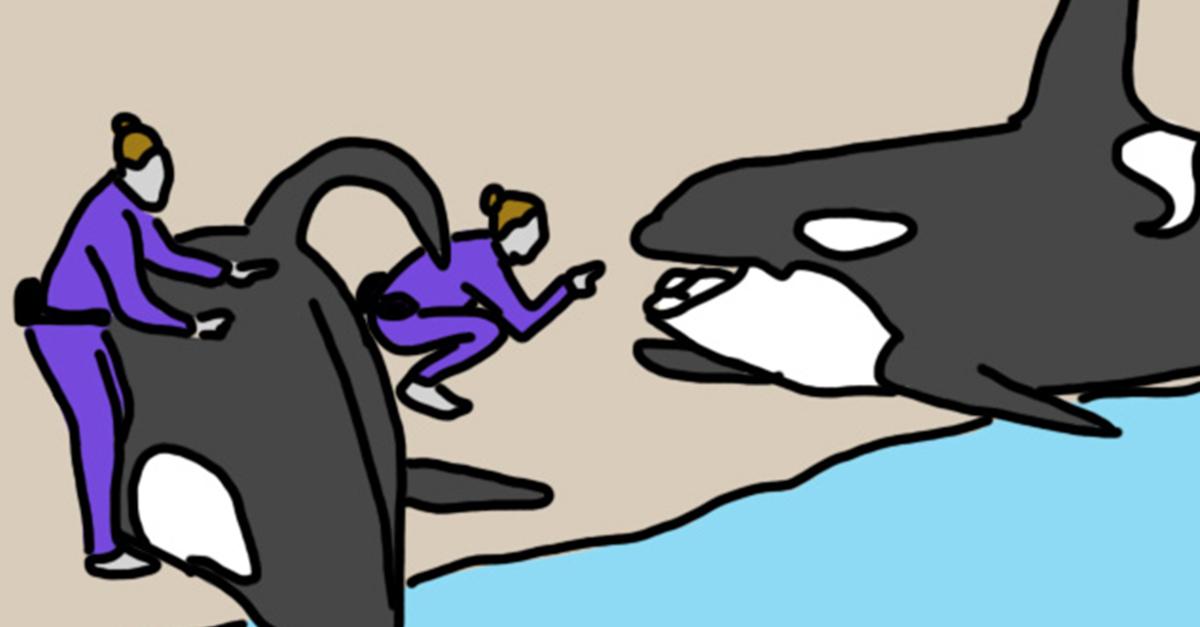
SeaWorld — known as a popular tourist destination where families can watch live shows featuring sea life — has been getting a lot of press lately, and it's not exactly good.
In 2013, thanks to the documentary Blackfish, the more sordid side of this aquatic theme park has been exposed, causing the public to realize the uncomfortable truth.
What they learned? That whales and dolphins need to be free — like these beautiful dolphins who love to play in the ocean with visiting friends.
Now, because of this new public awareness, SeaWorld is being forced to rethink its top-dollar attractions — and considering the many dangers of captivity, it's no wonder.
In an exclusive piece, we here at LittleThings decided to explore what emotional, physical, and medical struggles these beautiful creatures face when living in captivity.
What do you think about SeaWorld? Do you think it's time to end these orca shows?
Let us know your thoughts below — and please SHARE!
Danger #1: Loss of Appetite and Depression
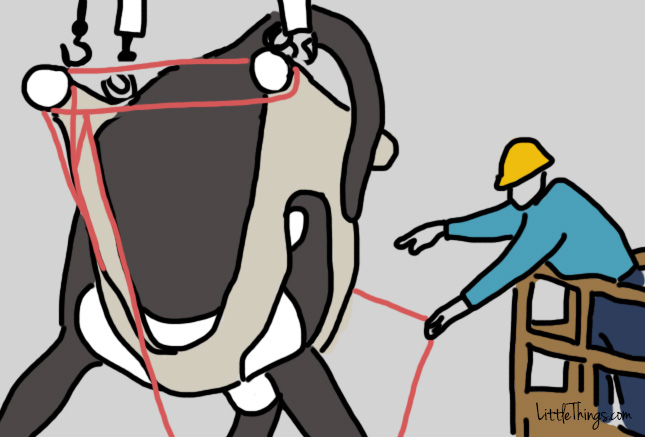
Yes, whales get depressed! Many of SeaWorld's whales were captured from the wild — including Keiko, who would star as Willy in the 1993 film, Free Willy.
He was captured near Iceland in 1979, and died in 2003 from pnuemonia — which he contracted after becoming lethargic, listless, and losing his appetite.
Danger #2: Collapsed Dorsal Fin
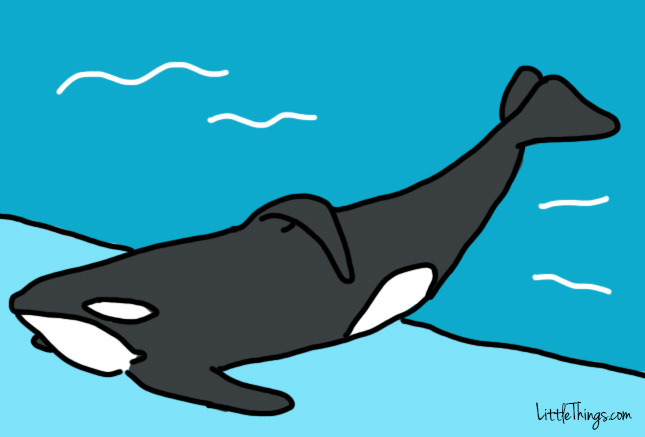
Most captive orcas have a collapsed dorsal fin. In the wild, these fins stand straight up, but they flop over in captive whales.
No one is really sure why this happens, but theories all point to the stresses of captivity. It may be from dietary changes, lowered blood pressure from reduced activity, and exposure to the heat of the air.
In the wild, a collapsed fin is only seen in orcas who have sustained a serious injury. SeaWorld, though, claims that a drooping fin does not necessarily mean ill health.
Danger #3: Sunburn and Sun Damage
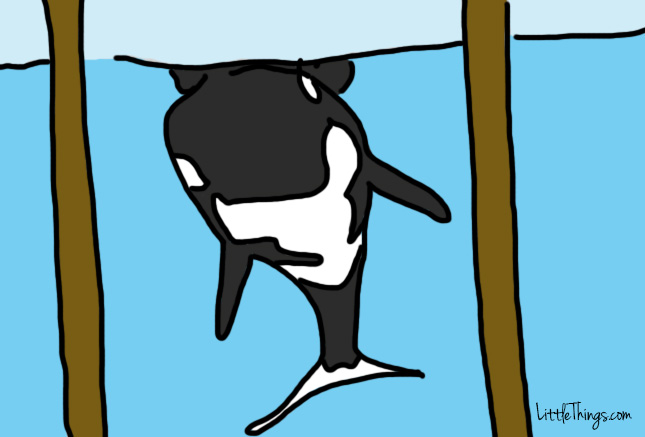
Whales are typically kept in tanks that are obviously much shallower than the ocean. Orcas can dive to depths of 1,000 feet, but the average tank is only 50 feet.
This means that the skin on the whales' backs is exposed to the sun, leading to sometimes severe sunburns, which can also become infected.
SeaWorld has been accused of covering the burns and lesions with black zinc oxide to hide them from the public.
Danger #4: Early Birthing and Difficulty Parenting
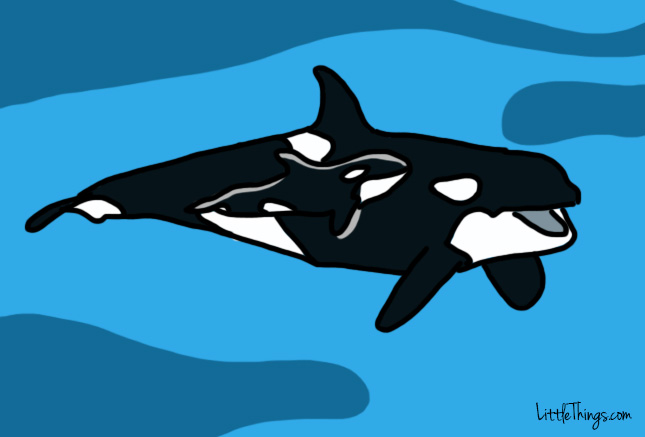
Some orcas are born into captivity, but their survival rate is much lower than that of wild calves.
Whales in captivity give birth much younger than they do in the wild and often have difficulty raising their babies.
Many calves die in the birthing process, some become ill during infancy, and some whale mothers even try to drown their own babies.
Danger #5: Aggression Towards Other Whales.
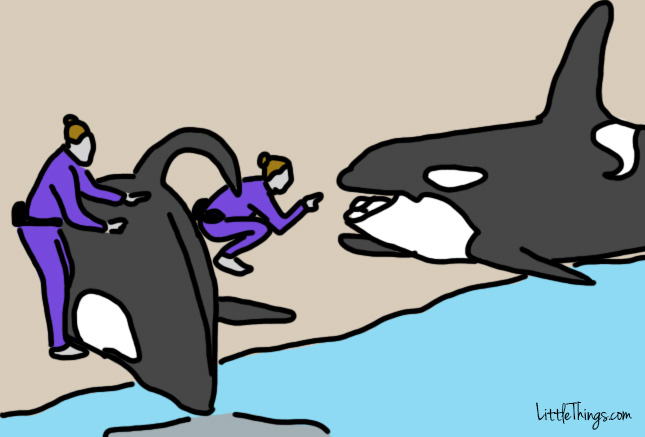
There have also been incidents of captive orcas becoming aggressive with one another, even causing death in one instance.
Because their living areas are so small compared to an ocean, it's thought that these close quarters may foster aggression.
Some scientists have theorized that the aggression is actually a symptom of anxiety.
Danger #6: Aggression Towards Humans
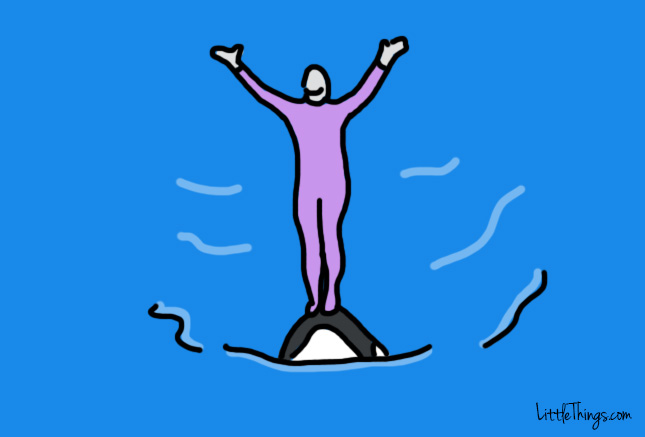
It's not just other whales that have borne the brunt of orcas' aggression; the aggressive behavior may be a result of the anxieties of being in captivity.
The attacks, many times carried out on SeaWorld trainers, have resulted in serious injuries — and in four cases, death.
But for captive orcas everywhere, there is now hope!
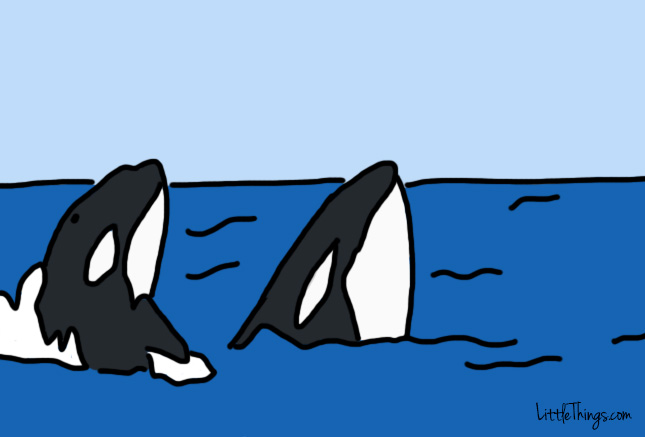
In 2014, SeaWorld San Diego decided that it would be taking its orca exhibits in a new direction.
While it's not possible to release all of the whales back into the wild (as those born into captivity would not survive the open ocean), the whales will now be housed in a more naturalistic environment — and they will not be performing tricks for audiences.
Their natural exhibits will now focus on education and conservation rather than just entertainment.
However, it's unclear what SeaWorld Orlando and SeaWorld San Antonio have planned for their orcas in captivity, but hopefully they will follow suit.
Please SHARE if you think these whales should be free!




